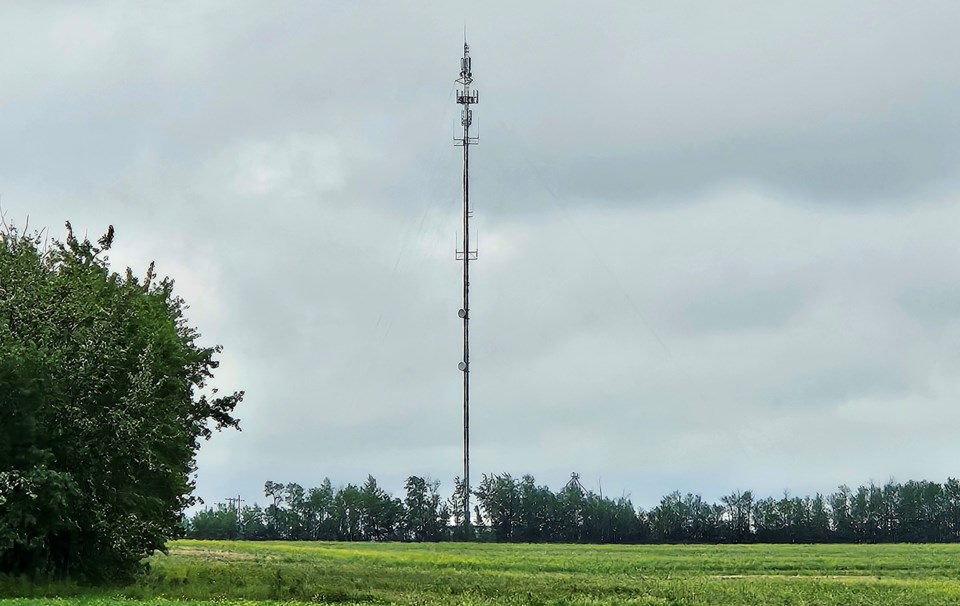After news of a theft of copper wire from a Westlock County site lthat was disrupting cell phone service for local users last week, the Ottawa-based Canadian Telecommunications Association has been monitoring these types of crimes across the country and are advocating for tougher measures and protection for telecommunications infrastructure.
“It’s something we’ve seen over the past couple of years, quite a substantial increase in instances of vandalism and theft affecting telecommunications infrastructure. It’s not restricted to cell towers,” said senior vice-president for the Canadian Telecommunications Association (CTA), Eric Smith. “The target in most cases, is cable copper wire that they want to sell for scrap metal to make money.”
Smith explained that often thieves are “not quite sure what it is they’re targeting” and other wires are damaged in the process, causing impacts to services in a community.
“They’re not really trying to get the fibre (optic) lines, they’re seeking the copper but fibre often gets cut in the course of those activities and obviously, the implications are for the affected community. Depending on what gets cut, it could be phone line outages, internet outages,” he said.
As the number of incidents continue to increase across the country, Smith said the CTA is committed to raising awareness about the issue with both the public and with lawmakers, and is encouraging people to be proactive when they see or hear of something suspicious in their communities.
“Definitely, if you see suspicious activity around telecommunications infrastructure, and that could be as simple as you see somebody who’s got a ladder up against a telephone pole that doesn’t look like they’re working for Bell or some other carrier and seems to be cutting lines and doing something that looks out of the ordinary, call law enforcement,” said Smith. “Same thing about people working around cell tower sites.”
In addition, the CTA is addressing the issue by taking the matter to elected officials, to do something about.
“We’re also advocating to the federal government that we need to increase the penalties associated with these crimes,” said Smith, noting that very often, if perpetrators are caught they are charged with theft under $5,000.
“To put it into context, it’s pretty much the same if someone stole a bicycle and obviously this type of crime has much more wide-spread impact and (possibly) life-threatening impact because you can imagine if someone needs to call 9-1-1 for example, and their service is down.”
Smith said he “doesn’t think there’s any real place in Canada that’s immune,” to the wide-spread issue and pointed to hundreds of cases across the country in recent years.
Costs, time and the process involved in repairing or replacing copper wire from a telecommunications tower varies, dependent on the extent of damage, noted Smith.
“In some cases you may have an outage that (lasts) 12 hours, but it can be longer. It really is dependent on the issue and why it’s taking that long — maybe some equipment was damaged, maybe something needs to be replaced,” said Smith, adding that while he cannot speculate on Westlock’s incident, “it’s illustrative of the issue.”
“Accumulatively, the industry is spending millions of dollars in repairs (every year) and they’re also looking at different ways to help monitor their networks, protect their networks, increasing security so that’s additional costs,” explained Smith. “It’s a very expensive endeavour. Then there’s also the indirect costs to the community,” he added, noting the impact for businesses, emergency service providers and even hospitals, when service is lost or disrupted. “It’s a very significant impact on the community.”
Smith said it will take a “community approach” to find a resolution for the ongoing theft and vandalism in the industry.
“It’s bad now. We don’t want to see it get worse, and that’s why we’re asking everyone to work together on this.”



